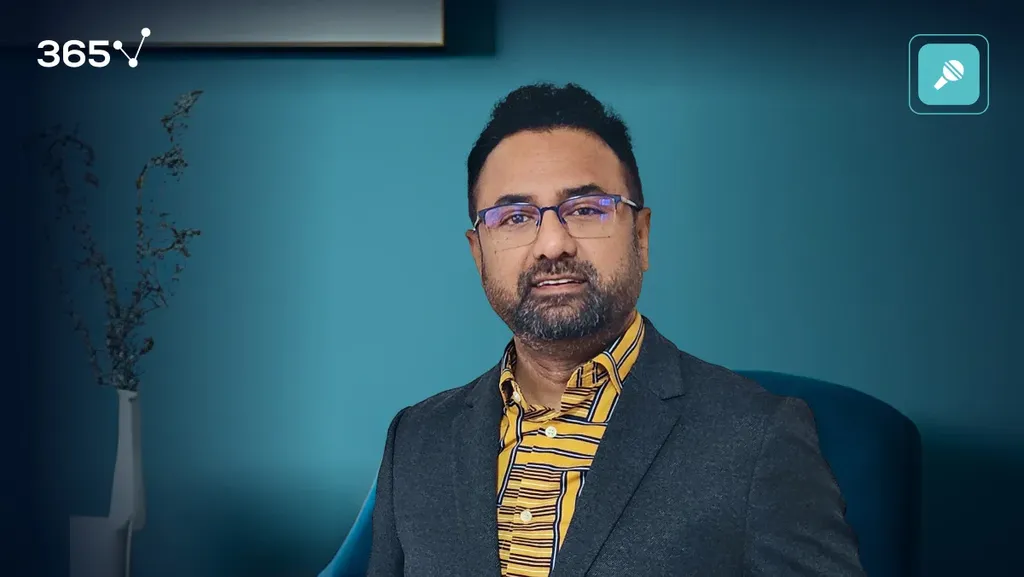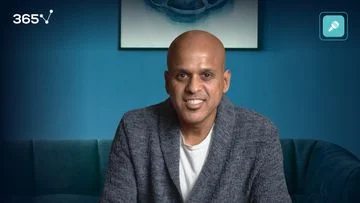
Breaking into data science is a long and winding road that requires technical and soft skills and a lot of resilience. We spoke to renowned industry experts and well-liked names in the data science community to discover how and when they knew they had what it takes for a career in the field. They shared their stories and the qualities they developed to succeed.
In this interview, we introduce you to principal data scientist Vamsi Nellutla. He has proven experience of over 20 years as a data science program leader. Learn more about his data science journey and when he knew he had what it took to succeed.
Interview with Vamsi Nellutla
Would you please tell us a bit about your background and journey into data science?
I have over 20 years of experience leading all phases of diverse technology projects, specializing in data science, machine learning, Six Sigma, big data analytics, agile software development, and program management.
My background in advanced statistical methods, high-dimensional data analysis, and machine learning has been invaluable in shaping my career in data science. I’ve had the privilege of training at Tier 1 research universities in these fields and have gained deep expertise in predictive analytics using Azure, IBM Watson, Spark, R, Python, and Splunk.
Throughout my career, I’ve had the opportunity to work on multiple high-dollar projects using the synergistic multi-disciplinary application of data science and Six Sigma Quality methodologies in an agile software development environment. I’ve also led enterprise data science and AI initiatives through machine learning, deep learning, natural language processing, and predictive analytics. And I’ve explored AI options in the market, educating the enterprise on these opportunities.
In addition, I’ve had the privilege of being the founder of the Dallas Data Science Academy—a premier educational, training, and career development center in data science, machine learning, and AI fields. As an Official Microsoft, IBM, and Google Network Partner with BBB A+ Rating for our ethical practices, we delivered rigorous technical and strategic training for motivated QA, BA, PM, big data professionals, and corporations. Our center was even rated among Fortune 25 Best Data Science and Analytics Bootcamps for 2023 in the U.S.
My journey into data science has been exciting, and I look forward to continuing to learn, grow, and make a meaningful impact in this field.
When did you know you have what it takes?
Knowing if I had what it took to succeed in data science was a gradual process. As I gained more experience and exposure to the field, I developed a deeper understanding of the skills and knowledge needed.
During my career, I’ve been fortunate to have many opportunities to showcase my data science skills and expertise. During the early years of my career—when I first started working on data-driven projects—I realized my passion for the field and my ability to excel in it.
Over the years, I honed my technical skills as I continued to work on increasingly complex and challenging data science projects. I developed a strong analytical mindset, which allowed me to approach problems with a unique perspective and find innovative solutions. As I started taking on leadership roles and managing teams, I discovered I had a natural talent for bringing people together and motivating them toward a common goal.
It wasn't until I began receiving recognition from my colleagues and superiors—both in terms of the quality of my work and its impact on the business—that I truly knew I had what it took to be successful in this field. Today, based on a proven track record of delivering successful projects, I have the skills, knowledge, and experience to continue making a significant impact as a data scientist.
As a data scientist, one needs strong analytical thinking and a lot of technical know-how. What skills did you start with, and how did you develop them to meet the role requirements?
As a data scientist, having a strong analytical mindset and technical know-how is critical to success. When I started my journey into data science, I had a strong foundation in mathematics, statistics, and programming. These skills helped me to develop a solid understanding of the core concepts in data science.
But to meet the role requirements as a data scientist, I had to continue building on these skills and develop new ones. I took various courses, attended workshops and conferences, and read extensively on topics related to data science, machine learning, deep learning, and predictive analytics. I also completed several online courses and certifications.
Additionally, I sought out opportunities to apply my skills to real-world problems. This allowed me to gain practical experience working with different types of data and helped me to develop my problem-solving and analytical skills.
Developing the capabilities to meet the role requirements of a data scientist is a continuous process of learning and application. It requires a commitment to staying up-to-date with the latest technologies, methodologies, and tools and a willingness to seek opportunities to apply these skills in practical settings.
Learning is a lifelong process—especially in a field that’s as dynamic as data science. Is there something new you’d like to learn more about or become better specialized in?
Absolutely. As a data scientist, I strongly believe that learning is a lifelong process, and there is always something new to learn or a new skill to master.
I firmly believe that continuous learning is crucial for staying up-to-date with the latest developments in the field. One area that I am particularly interested in delving deeper into is natural language processing (NLP) techniques, which have numerous applications in areas like sentiment analysis, chatbots, and machine translation. I’m also keen on exploring the potential of deep learning frameworks for building more sophisticated models and enhancing predictive accuracy.
Another area I would like to become better specialized in is explainable AI. With the increasing adoption of AI and machine learning, it is becoming more important than ever to understand how these systems arrive at their decisions and ensure that they are fair and unbiased. Understanding how to build explainable AI systems is an important skill for any data scientist, and I am eager to learn more about this topic.
Staying curious and open-minded about new developments in data science is crucial for continued growth and success. There’s always something new to learn or a new challenge to tackle, and I look forward to exploring these opportunities as they arise.
As an expert in the field, you must have an ample idea of the qualities a person needs for data science. What would you say those are?
Several qualities are essential for success in this field. Here are some of the key qualities that I consider important:
- Analytical mindset. Data scientists must be able to think critically to solve complex problems.
- Curiosity and creativity. Data scientists should have a natural curiosity and a desire to explore and discover insights hidden within data. They should be able to approach problems with creativity and be willing to experiment with different solutions.
- Strong technical skills. Data scientists should have a strong foundation in mathematics, statistics, and computer programming. They should be proficient in tools and technologies used in data science, such as R and Python libraries.
- Communication skills. Data scientists should be able to communicate complex ideas and insights to technical and non-technical stakeholders in a compelling and accessible way.
- Business acumen. Data scientists should be able to identify key business problems and opportunities and use data to drive decision-making.
- Continuous learning. Data science is rapidly evolving; data scientists must stay up-to-date with the latest technologies and methodologies.
A successful data scientist needs a combination of technical, analytical, creative, and soft skills and a strong understanding of the business context in which they are working.
As the industry develops, the demand for skilled data scientists grows exponentially. What gives an aspiring data scientist a competitive edge in 2023?
There are a few things that aspiring data scientists can do to gain a competitive edge in 2023.
- Specialization. While having a broad understanding of the field is important, having a specialized data science skillset can set you apart from other candidates. Consider focusing on a particular area of data science, such as machine learning, deep learning, natural language processing, or data visualization.
- Industry-specific knowledge. Having domain expertise in a particular industry can be a valuable asset in data science. For example, if you are interested in data science for healthcare, gaining knowledge of industry regulations, data privacy laws, and clinical workflows can make you stand out from other candidates.
- Continued learning – Participate in online courses, attend workshops, and read research papers to stay on top of the latest trends and developments.
- Soft skills for data science. Data scientists need to be able to communicate their findings to both technical and non-technical stakeholders. Strong verbal and written skills are essential to convey complex ideas clearly and concisely.
- Real-world experience. Practical experience is highly valued in the data science industry. Consider participating in internships, volunteering, or working on personal data science projects.
Gaining a competitive edge in data science requires combining technical and soft skills, industry-specific knowledge, continued learning, and real-world experience. Aspiring data scientists can position themselves for success in the industry by focusing on these areas.
We want to thank Vamsi for providing valuable insights into what it takes to be a data scientist.
Our aim at 365 is to equip you with the tools and give you the necessary guidance to succeed. Designed never to let you give up, the 365 Data Science platform has what you need to develop your qualities and skills.
Go from a beginner to a skilled professional who creates data-driven value. Study the statistics and probability theory behind data science with online courses led by our renowned instructors, and master sought-after skills like Excel, SQL, and Tableau. Prove you’ve got what it takes with industry-recognized certificates.



